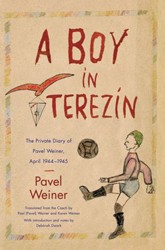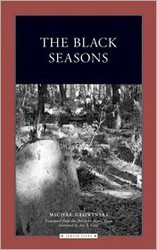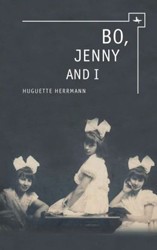Each Holocaust survivor’s story is unique and cries out to be told. Some have been lost, others submerged in collective histories. In Claiming My Place: Coming of Age in the Shadow of the Holocaust, Gucia Gomolinska/Basia Tanska, a Jewish woman who survived by passing as Aryan, has found a vehicle for her tale of loss and survival. Despite some ambiguity about how author Planaria Price has recreated Basia’s past, the book is a searing personal account full of unforgettable details, as well as broader questions about the ultimate meaning of her experience.
The daughter of an affluent family in Piotrków, Poland, Price (in first person, from Gucia’s perspective) begins the book by describing her privileged childhood and ends as a grateful immigrant to America, having survived the war with a false identity card, which enabled her to work as a Polish Christian in Germany. Each chapter is a dated entry in which Gucia, later Basia, chronicles her friendships, romantic relationships, and family life — until the German invasion abruptly destroys this world. By the time her ghetto is facing annihilation, she is desperate to be considered an “essential worker,” whose life may be spared because of her utility to the Nazis. Such insights into her radically altered existence link the book’s events into a cohesive account.
Even after liberation, Basia feels unable to return to her old identity, deciding that Gucia’s life is finished, while Basia’s has enabled her to be “strong and adult.” Young adult readers may especially relate to this process of maturing and coming to terms with the past. Equally important are Basia’s diverse portraits of Poles — some as courageous saviors of their Jewish friends, and others as only too eager to betray Jews to the Germans. Given the recent passage of a law in Poland which virtually criminalizes any suggestion that Poles participated in the Nazis’ reign of terror, these passages are crucial evidence of the truth. The final section of the book is a personal reflection by Basia’s daughter, Helen Reichmann West, which provides additional, sensitive insights into her mother’s life as a wife and mother in her adopted home.
One question which remains to be addressed is Price’s approach to telling Basia’s story. In the introduction, the author writes about meeting Basia’s daughter Helen, and volunteering to undertake the ambitious project of writing about her mother’s life while “keeping her voice and portrayals authentic and the story accurate.” She also states that “some of the dialogue or a few details necessary for the narrative flow have been invented.” Yet, the book has no footnotes and doesn’t mention any written records that Price consulted — only Basia’s conversations with Price; they met when Basia was ninety years old.
Understanding that memory is imperfect and inaccuracies are inevitable, several passages in the book seem to be anachronisms — such as frequent use of the phrase tikkun olam as a modern reference to social action instead of its traditional, legal meaning. Similarly, it seems likely that a scene in which Basia and a friend discuss rumors that the Nazis were persecuting homosexuals and people with disabilities was included in order to educate modern readers. To suggest that this book is in some sense a work of historical fiction does not compromise its essential honesty or validity. Understanding more about how Price combined Basia’s own memories with historical research and with her own literary talent would only enrich the reader’s experience of this moving work.
Claiming My Place is recommended for readers 14 and older. It offers an excellent opportunity to discuss the ways in which we reconstruct and remember the past.
Emily Schneider writes about literature, feminism, and culture for Tablet, The Forward, The Horn Book, and other publications, and writes about children’s books on her blog. She has a Ph.D. in Romance Languages and Literatures.





